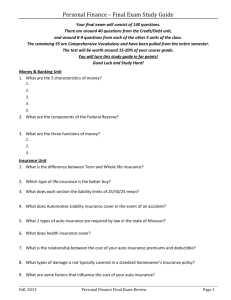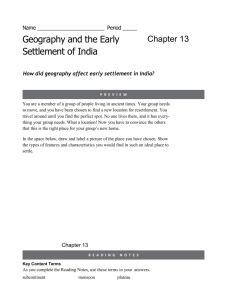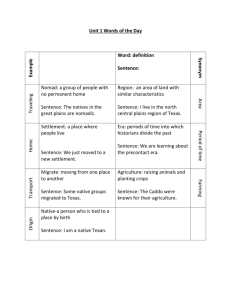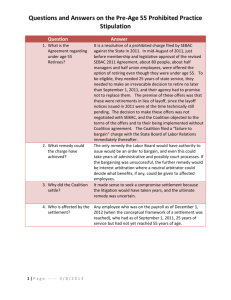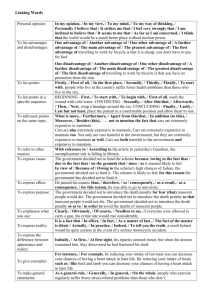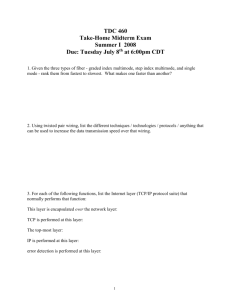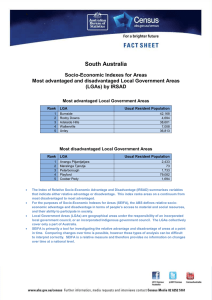IBT Variation to the Settlement Agreement
advertisement
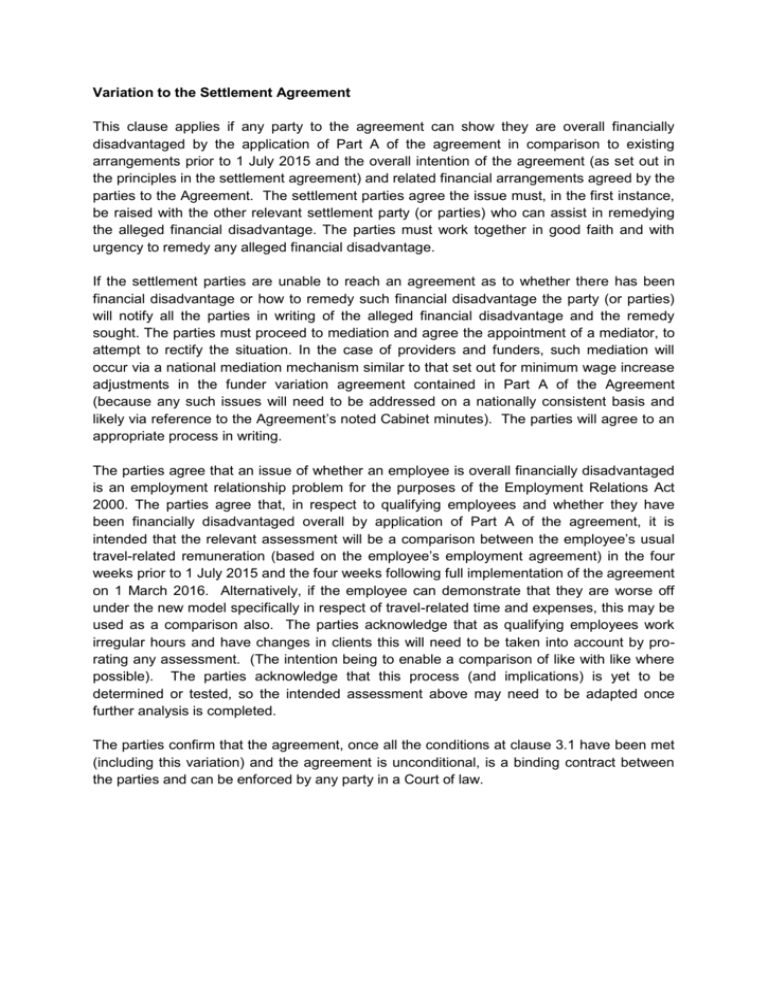
Variation to the Settlement Agreement This clause applies if any party to the agreement can show they are overall financially disadvantaged by the application of Part A of the agreement in comparison to existing arrangements prior to 1 July 2015 and the overall intention of the agreement (as set out in the principles in the settlement agreement) and related financial arrangements agreed by the parties to the Agreement. The settlement parties agree the issue must, in the first instance, be raised with the other relevant settlement party (or parties) who can assist in remedying the alleged financial disadvantage. The parties must work together in good faith and with urgency to remedy any alleged financial disadvantage. If the settlement parties are unable to reach an agreement as to whether there has been financial disadvantage or how to remedy such financial disadvantage the party (or parties) will notify all the parties in writing of the alleged financial disadvantage and the remedy sought. The parties must proceed to mediation and agree the appointment of a mediator, to attempt to rectify the situation. In the case of providers and funders, such mediation will occur via a national mediation mechanism similar to that set out for minimum wage increase adjustments in the funder variation agreement contained in Part A of the Agreement (because any such issues will need to be addressed on a nationally consistent basis and likely via reference to the Agreement’s noted Cabinet minutes). The parties will agree to an appropriate process in writing. The parties agree that an issue of whether an employee is overall financially disadvantaged is an employment relationship problem for the purposes of the Employment Relations Act 2000. The parties agree that, in respect to qualifying employees and whether they have been financially disadvantaged overall by application of Part A of the agreement, it is intended that the relevant assessment will be a comparison between the employee’s usual travel-related remuneration (based on the employee’s employment agreement) in the four weeks prior to 1 July 2015 and the four weeks following full implementation of the agreement on 1 March 2016. Alternatively, if the employee can demonstrate that they are worse off under the new model specifically in respect of travel-related time and expenses, this may be used as a comparison also. The parties acknowledge that as qualifying employees work irregular hours and have changes in clients this will need to be taken into account by prorating any assessment. (The intention being to enable a comparison of like with like where possible). The parties acknowledge that this process (and implications) is yet to be determined or tested, so the intended assessment above may need to be adapted once further analysis is completed. The parties confirm that the agreement, once all the conditions at clause 3.1 have been met (including this variation) and the agreement is unconditional, is a binding contract between the parties and can be enforced by any party in a Court of law.


